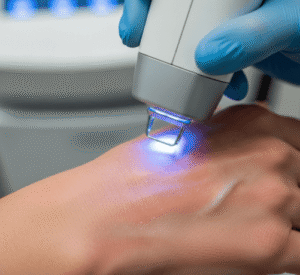Overview
Cluster B personality disorders are a group of mental health conditions marked by dramatic, emotional, and erratic behavior. These disorders significantly impair relationships, emotional regulation, and self-image. Individuals with Cluster B disorders may have intense mood swings, impulsive behaviors, and difficulty maintaining stable relationships. They are often misunderstood, stigmatized, and underdiagnosed, yet early treatment can lead to significant improvement in quality of life.
What is Personality Disorders Cluster B?
Cluster B personality disorders are defined in the Diagnostic and Statistical Manual of Mental Disorders (DSM-5) as a group of four distinct disorders characterized by emotional instability, impulsivity, and interpersonal dysfunction:
- Antisocial Personality Disorder (ASPD): Disregard for the rights of others, deceitfulness, and lack of remorse.
- Borderline Personality Disorder (BPD): Intense emotional instability, fear of abandonment, and self-destructive behavior.
- Histrionic Personality Disorder (HPD): Excessive emotionality and attention-seeking behavior.
- Narcissistic Personality Disorder (NPD): Grandiosity, need for admiration, and lack of empathy.
These disorders are often deeply rooted in early life experiences and present in late adolescence or early adulthood.
Symptoms
Each disorder in Cluster B has unique characteristics, though they share overlapping traits such as emotional instability and social conflict.
Antisocial Personality Disorder (ASPD):
- Repeated violation of laws or social norms
- Deceitfulness and manipulation
- Aggressiveness or irritability
- Lack of remorse after harming others
- Irresponsibility in work or finances
Borderline Personality Disorder (BPD):
- Intense fear of abandonment
- Unstable relationships and self-image
- Impulsive behavior (e.g., substance abuse, reckless driving)
- Self-harm or suicidal behavior
- Extreme mood swings
Histrionic Personality Disorder (HPD):
- Constant need for attention
- Inappropriate seductiveness or provocative behavior
- Rapidly shifting and shallow emotions
- Dramatic speech and exaggerated expression of emotions
- Easily influenced by others
Narcissistic Personality Disorder (NPD):
- Grandiose sense of self-importance
- Fantasies of success, power, or beauty
- Belief in being unique or superior
- Need for excessive admiration
- Lack of empathy for others
Causes
Cluster B personality disorders arise from a mix of genetic, biological, and environmental factors:
- Genetic predisposition: Family history of personality or mood disorders
- Brain structure and chemistry: Dysfunction in areas responsible for impulse control and emotional regulation
- Childhood trauma: Physical, emotional, or sexual abuse; neglect; abandonment
- Inconsistent parenting: Overindulgence or severe criticism
- Unstable attachments: Disrupted bonding in early childhood
No single cause is responsible; it is usually the interplay of multiple factors over time.
Risk Factors
Certain factors increase the risk of developing Cluster B disorders:
- Family history of personality or mood disorders
- Exposure to traumatic events in childhood
- History of substance abuse or impulsive behavior
- Poor emotional regulation or high reactivity
- Neglect or unstable family environments
- Early signs of conduct disorder (especially in ASPD)
Complications
Without treatment, Cluster B disorders can lead to significant life disruptions:
- Difficulty maintaining relationships
- Legal or criminal problems (particularly with ASPD)
- Self-harming behavior or suicide risk (especially in BPD)
- Substance abuse and addiction
- Employment or academic failure
- Social isolation and stigma
- Co-occurring mental health disorders (e.g., depression, anxiety)
Early diagnosis and treatment are critical to prevent these complications.
Prevention
While personality disorders cannot always be prevented, early intervention and support can reduce severity:
- Early treatment of childhood behavioral issues or trauma
- Building secure, stable attachments in early life
- Teaching emotional regulation and coping skills in youth
- Encouraging healthy communication in families
- Promoting resilience through therapy, education, and peer support
- Addressing early signs of personality dysfunction in adolescence
Treatment Options in Korea
South Korea provides extensive mental health services tailored to personality disorders, including inpatient, outpatient, and community-based care.
- Psychotherapy (Mainstay of Treatment):
- Dialectical Behavior Therapy (DBT): Especially effective for BPD, focusing on emotional regulation, mindfulness, and crisis management.
- Cognitive Behavioral Therapy (CBT): Helps address distorted thoughts and improve coping strategies.
- Mentalization-Based Therapy (MBT): Enhances understanding of self and others in relationships.
- Schema Therapy: Targets deep-rooted maladaptive thought patterns and beliefs.
- Medication:
- No specific medications cure personality disorders, but SSRIs, mood stabilizers, and antipsychotics are used to manage symptoms such as depression, impulsivity, or aggression.
- Patients with severe mood instability or suicidal ideation may require hospitalization for stabilization.
- Integrated Care in Korea:
- Hospitals such as National Center for Mental Health, Asan Medical Center, and Severance Hospital offer comprehensive psychiatric care with specialized personality disorder programs.
- Community mental health centers across Korea provide long-term counseling, crisis support, and vocational rehabilitation.
- Digital mental health apps and tele-therapy are gaining popularity, providing confidential support and accessibility for young adults or those hesitant to seek in-person help.
With ongoing therapy, supportive relationships, and structured treatment, many individuals with Cluster B disorders can lead meaningful and stable lives.













